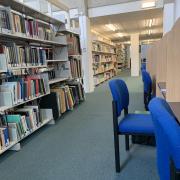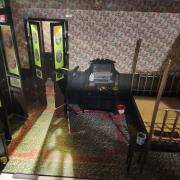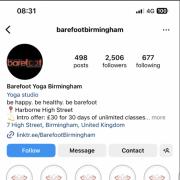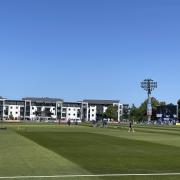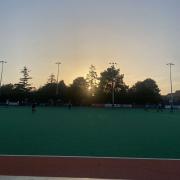
Priyenka Devkota shares her experience, in this interview, as a child of frontline NHS workers, regarding the impact the coronavirus has had on her family. Her mother is a head district nurse at Dulwich hospital and her father has a job in the eye department; both are still working at their respective hospitals up to 5 days a week.
Upon the arrival of the coronavirus, Priyenka notes how this unprecedented situation has increased the already amounted levels of stress that come with in the medical profession. She also says here parents come home exhausted after their shifts. I asked her how she feels about her parents being exposed to the coronavirus, to which she replied and recalled an alarming incident – “I find it a bit unsettling, especially because some patients do not even declare that they are COVID-19 positive! A couple days ago, there was a patient wandering from room to room, doing diagnostic tests, having appointments on the same floor as my father. He failed to let the staff know until very late, and I feel like it is this type of reckless behaviour that contributes to the rising numbers of those impacted.”
I then proceeded to question her on whether PPE eases her concerns. Priyenka says her dad wears, “full scrubs, a mask, a visor etc. Normally, he would conduct his work in a suit and no PPE – it was not needed before even in direct contact with people. It’s good to see that he is getting protection”, it is still crucial to protect staff working at hospital, who aren’t interacting face to face with coronavirus positive patients, because they are still at risk by working in the same environment and atmosphere as them. To further ease her discomfort and to lighten the mood Priyenka adds, “My father actually sends selfies! - now while working during the pandemic.”
My next question focused more on the alterations in her family interactions. Priyenka states – “my mother must wipe down everything [door handles, furniture, etc] before she comes into our house. I would not say there is much difference to how the general population acts, but we tend to avoid going to the park or only go out when necessary (grocery shopping for example). I do not think it is that bad, but before when we were all symptomatic, we simply couldn’t go out at all and being cooped up all together for about 2 weeks wasn’t great.” I can see how being unable to the park may affect Priyenka as she generally likes sports and exercise; avoiding the park may be tough on her.
When asked on how she supports her family, Priyenka humbly responds with, “I think I have it luckier than most, as I do not have any siblings who are extremely young. My sister, aged 9, still goes to school every day. Staying at home on my own isn’t that bad at all, and sometimes I make dinner or collect my sister from school, which isn’t bad at all.” Priyenka also supports not only her parents but the whole community but risks her health by volunteering at the hospital to keep the rest of the population healthy and safe.
I then wanted to know her thoughts on those who disregard the gravity of covid-19 by choosing to violate the lockdown rules set by the government. Priyenka responds affronted with, “it [going outdoors without reason] is 100% unavoidable and unjustified. Having parents who go to work every day, as a commitment to our community, facing people with COVID symptoms, it makes me slightly angry that people will push the boundaries just for their own pure leisure and enjoyment,” to shed light on the significance self-isolation does for our safety, she adds – “My father became symptomatic in the controlled environments of a hospital; this just goes to show how easy it could potentially be to contract the virus.”
Finally, I asked her if she would like to deliver a message to the community. She advised – “Stay at home. Only go out for essentials such as food, medical, and on exercise grounds. Every time you go out for unnecessary reasons, you are endangering yourself and the people around you.”
Whilst places of worship and prayer might be temporarily closed, God is keeping vigil in the form of these diligent NHS workers who rise above the risk of their health on a daily basis to keep us all safe and protected. We owe it to them and their supportive families to observe social distancing measures and other advised precautions. Stay home, stay safe, protect the NHS and other key workers.






